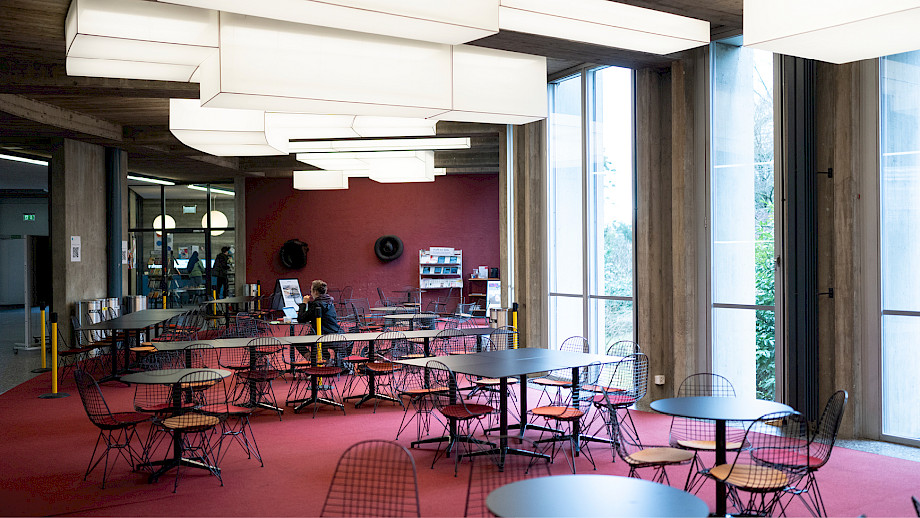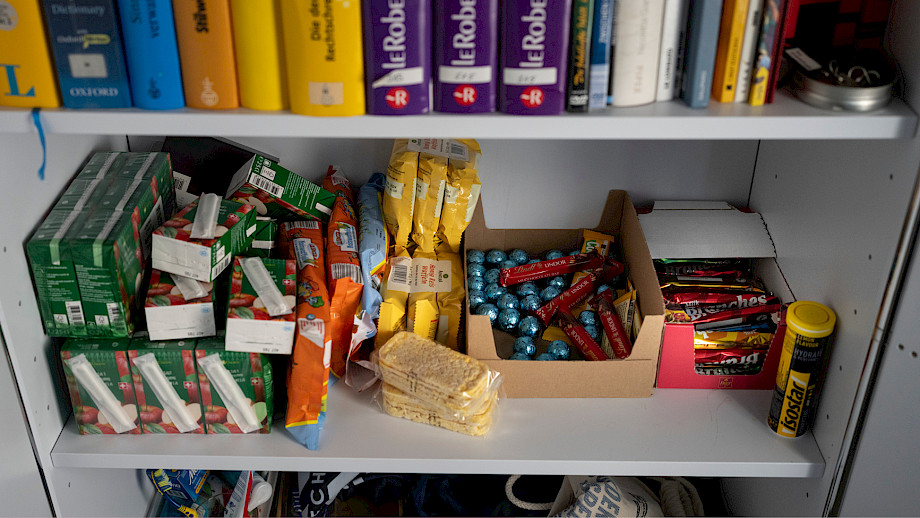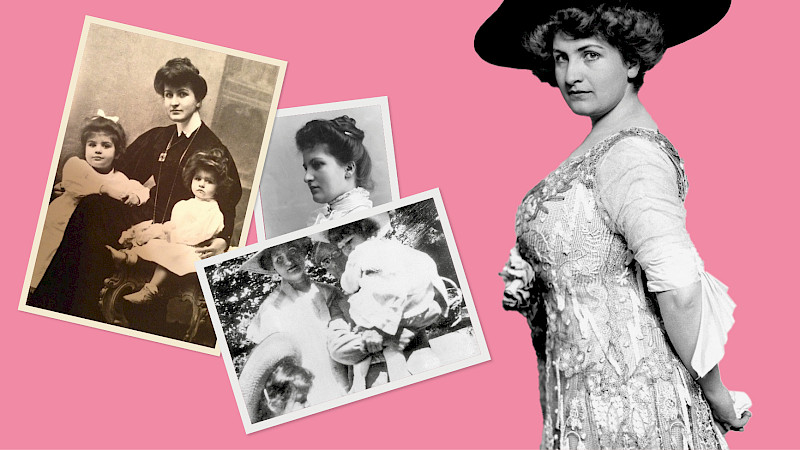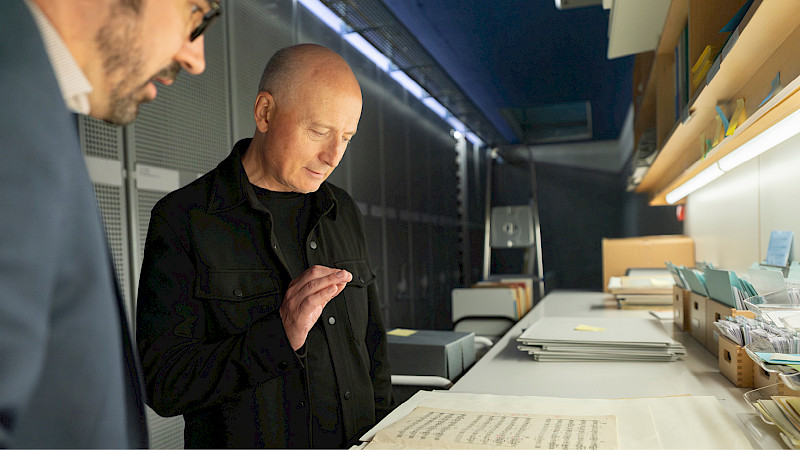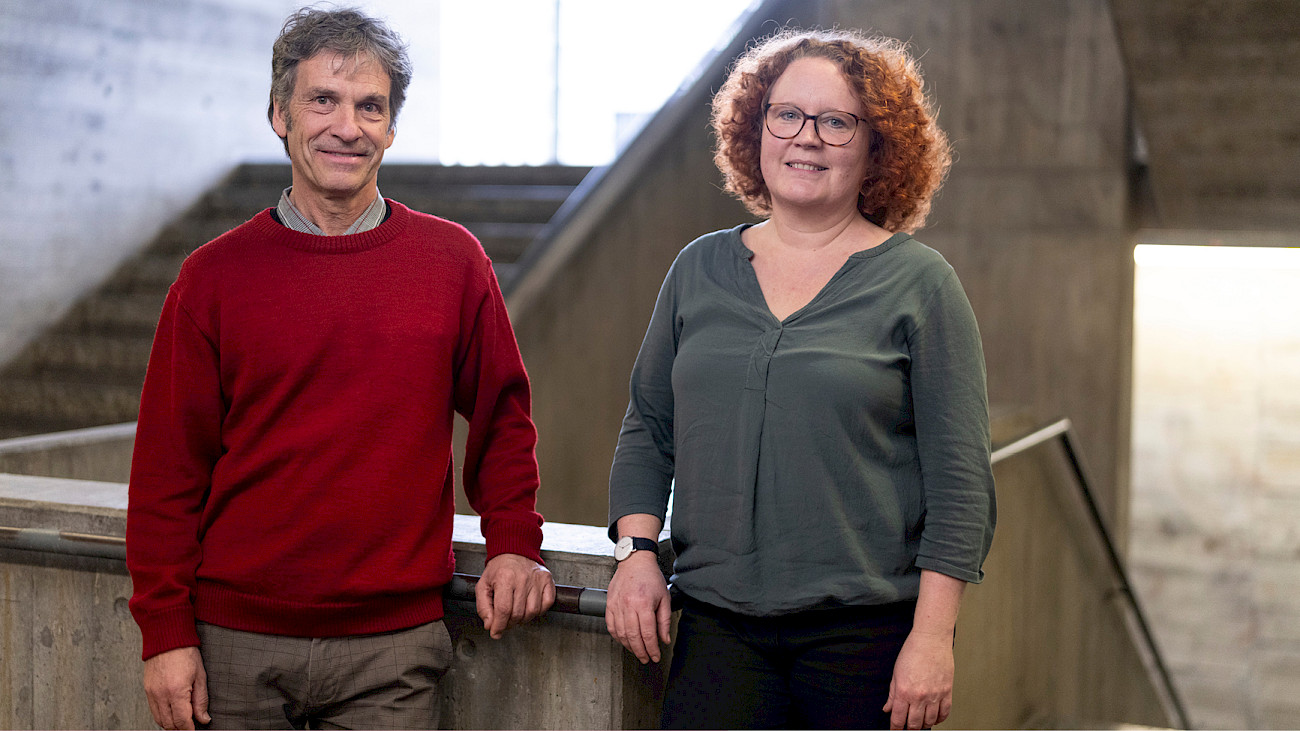
School of special talents
Coordinating, coaching and letting go - these are some of the tasks of Regula Meili and Martin Schmid at Zurich's Rämibühl Art and Sports High School.
"An intensive hobby - please don't say that to our students, they would find it totally disrespectful. It really isn't a hobby for our K S students. It's a competitive sport!" Regula Meili gives this advice when she speaks with empathy, respect and passion in her sober office about her exceptionally talented students at the Kunst und Sport Gymnasium Rämibühl (K S Gymnasium).
The K S Gymnasium, which is not far from Zurich city centre, is affiliated to the Mathematisch-Naturwissenschaftliches Gymnasium Rämibühl (MNG). Pupils at K S Gymnasium (K S students) and MNG are taught by the same teachers and all are taught the same subject matter. The same requirements are met as at conventional short grammar schools - in five years instead of four. However, only those who have a special talent in music, dance or sport in addition to their grammar school education can be K S students.
Regula Meili works at both grammar schools in different roles. She is an Italian, French and currently also a class teacher at the MNG. And she works at K S Gymnasium, heads the four-person coordination team and has been involved since the very beginning. Coordinating - this is not a word that is spontaneously associated with young adults who still have to find themselves and are allowed to try things out. The K S pupils develop and perfect their special talents in this already dynamic phase of their lives. "K S Gymnasium provides the freedom for training and competitions in addition to good supervision," says the website.
In order to be able to deal with all these tasks, challenges and talents, coordination is key for the K S students. Sounds technical, but it's essential here. The K S coordinators support the K S students so that they can successfully complete the demanding dual training programme. This includes Mrs Meili, who takes the pupils under her wing in the sports of figure skating and figure dance, football, martial arts, artistic gymnastics, cycling, skateboarding, sport climbing, squash, tennis, volleyball, water jumping and water polo.
Sometimes like a coach
Another coordinator, Martin Schmid, is responsible for the pupils who can develop their extraordinary talent for an instrument or dance alongside school. Today is the music teacher's birthday. He has prepared tangerines and dried fruit on the long bar table in the staff room for his colleagues. The days are full for the teachers too, but there is still time for a coffee and a chat. There is also time to talk about the pupils, because they want to know how they are doing and how they can best coordinate school and sport or an instrument for each K S pupil. Everyone is different and has individual challenges as a dancer, flautist, floorball, tennis or golf player, which can change abruptly or gradually in the event of a drop in motivation, eating disorders, lack of sleep or after an injury. This then has a major impact.
"We can accept a maximum of 48 children per year group. A year group includes one to five musicians, three to six dancers and the rest are athletes".
"When female athletes get injured, for example - cruciate ligaments are a big issue here - everything in their lives gets mixed up. On the one hand, they lose their self-image as an athlete; on the other, they suddenly have a lot of time to fill. You can also have too much time on your hands at that age and then you start to worry a lot. We coordinators are also a bit of a coach in such situations. For example, it's about discussing with the athlete how they can stay motivated to achieve what they once set out to do. How can we get them back on track? We provide support, hold many discussions, explain in all directions and are the link between the school and the coaches," explains Regula Meili.
"We can accept a maximum of 48 children per year group. A year group includes one to five musicians, three to six dancers and the rest are athletes," says Regula Meili. This results in around 250 K S students in five year groups. Ms Meili and Mr Schmid are each responsible for around 70 pupils as coordinators. Both have been involved in the programme since its beginnings in 2000/01, K S Gymnasium has been a Swiss Olympic Partner School since 2005 and today there are four of them in the coordination team.
"They are incredibly good"
What has changed since the programme was founded almost a quarter of a century ago? The two agree that the composition of the students varies. There used to be more orienteers and now floorball and sport climbing are in vogue. In terms of instruments, the violin and cello remain stable in terms of popularity. For the first time, there is a double bass player, wind instruments are rare and there are regular guitarists. "What has changed significantly over the years, however, are the demands on the instrument. The level of the current cohorts is higher than that of the previous ones," sums up Martin Schmid, who was a teacher at the MNG before the programme began and is still very impressed by his students. "They are incredibly good. I think achievement is important, but I distance myself from a primitive idea of achievement. I don't think in elitist terms or only in terms of performance. In sport, I've noticed that it's very much accepted that you need a setting in which someone can realise their potential. The most important thing for me here is that young people can realise their potential."
Some K S students give an insight into their worlds in the school's image film. In it, canoeist Ladina, dancer Luis and handball goalie Ramon, among others, explain what training at this school means to them. Deborah Schmid, who has been a junior flute student at the Zurich University of the Arts since 2019, says enthusiastically: "When I make music, I'm in a world of my own. I play because I enjoy it. You can tell so many stories with music. I decided to do it because that's what I want: to make so much music, practise so much and still go to a grammar school at the same time. The teachers are super open. They help and support you. Everyone has the pressure and expectations from themselves and from the others. Because everyone in the class has that, it's a sense of community. You can talk to anyone and they really understand you."
Learning on different levels
For Deborah and everyone else, the weekly lessons take place over just six half-days. The timetable is reduced to around 23 lessons for the K S students. As a result, the school year at the Kurzgymnasium lasts five years for the K S students, one year longer than usual. The "free" time is available for sports, dance or music training. "This takes place mainly within the structures for promoting young talent in the sports associations and dance schools and as part of the PreCollege of the Zurich University of the Arts," as stated on the school's website.
Since the 2022/23 school year, the K S Gymnasium has offered the fourth and fifth classes additional flexibility, which the K S students can and must deal with. There are no face-to-face lessons on two days; depending on the semester, pupils work on the material regardless of time and place. The ability to organise themselves independently is encouraged and challenged here. Learning platforms that have emerged during the pandemic have favoured this development. "Blended learning" is the name given to the combination of face-to-face and online learning. Quite a lot to learn in quite a few long days.
The food cupboard
Sometimes you need something quick for in-between, an energy boost before you leave school for training or the school canteen's offerings aren't so convincing. Here, too, Mrs Meili is the place to go, because in her individual office there is a "food cupboard", as she calls this informal meeting place. It is filled with honey-rice waffles, chocolate bars, wholemeal crackers and iced tea. Students can help themselves here while Mrs Meili has a quick chat with them about how the competition in Egypt went - "Congratulations!" -, when the next training camp is coming up and whether a school exam has to be postponed and made up for. "This is where the cool encounters happen," says Mrs Meili about the moments between door and door. And what is it like over time? "The graduation ceremony is always a special moment. You've been with them for five years, we know each other well and then you say goodbye. We then have ten days until the new ones arrive. It's always about letting go."
Translated with DeepL.com




